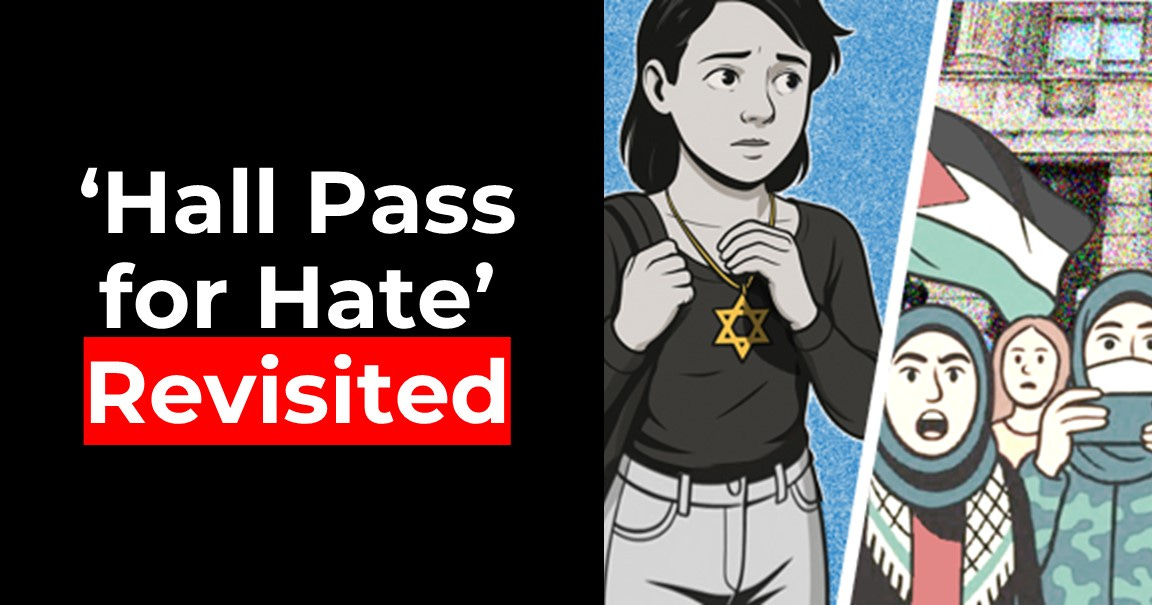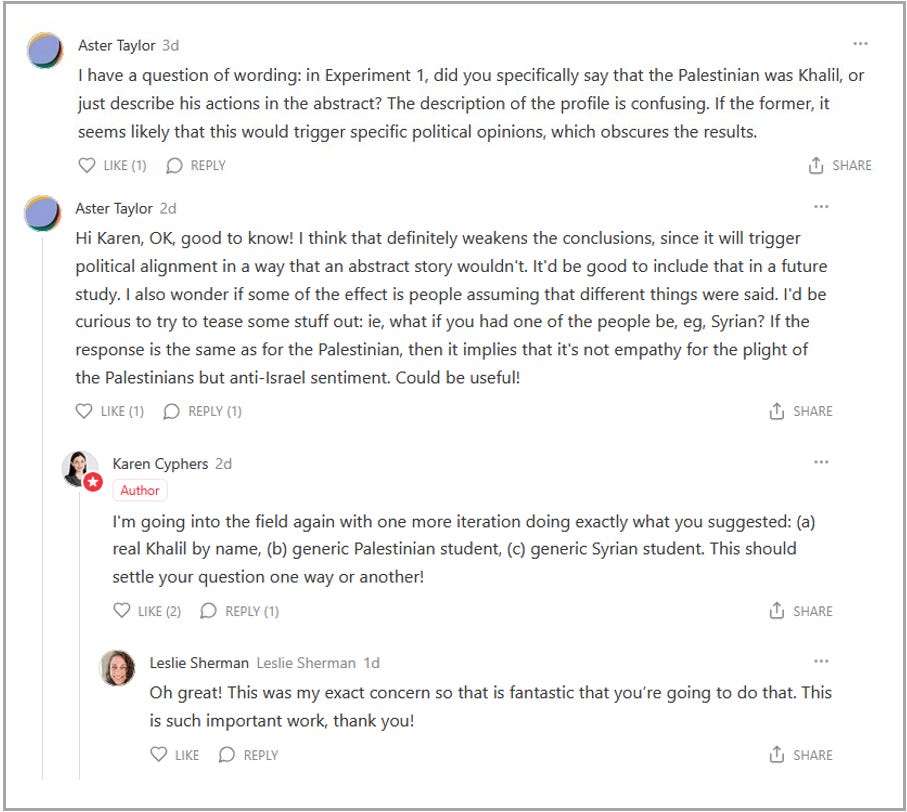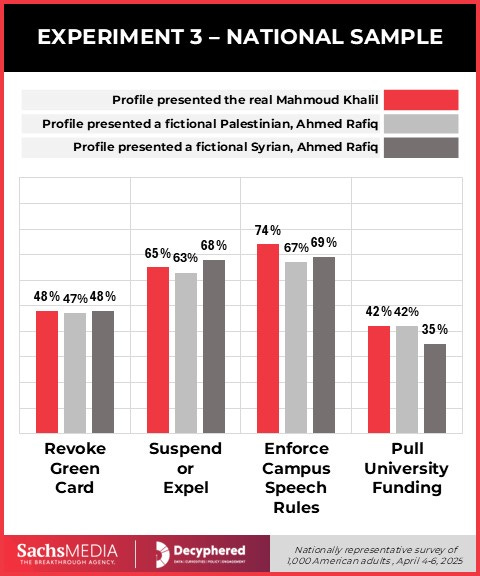‘Hall Pass for Hate’ revisited: Follow-up study inspired by readers reinforces findings
Results of a new experiment, and a teaser of a new topic, next
First, a thank you
My goal in starting this Substack was to create a space where research could be shared, discussed, and debated – and I hoped readers would share feedback and critiques that would lead to deeper dives into complex topics.
And to my great satisfaction (and slight surprise), that’s already happened – and it’s quickly sparked new research questions and findings.
I wanted to share some of those outcomes – both because they’re interesting on their own, and as a way of encouraging more of that back-and-forth. Please keep the feedback, challenges, and questions coming; that’s what makes this so fun.
The original findings & the feedback
After we published our most recent Substack, “Hall pass for hate?” – which uncovered that harassment on college campuses is seen as less worth of punishment depending on the identity of the perpetrators or victims – I heard from a few readers who were concerned about one specific aspect: the use of the real Mahmoud Khalil in the study, rather than a generic or fictional student.
Indeed, in the original setup, Khalil was specifically identified by name, while the other “foreign students” were fictional.
Some of our readers worried that featuring Khalil – as the only Palestinian (or Middle Eastern) student – might have led survey respondents to think too politically about his specific case, making it harder to generalize the results.
A reader also suggested it would be useful to include a profile of a Syrian (not Palestinian) student, since perceptions might differ for someone from outside the immediate conflict zone.
While my original intent was to provide context for Khalil’s case specifically – and that’s why I used his real name – the feedback was compelling enough that I decided to run a follow-up experiment. It was important to confirm, or rule out, whether sympathy for Khalil as an individual might have softened respondents’ willingness to endorse punishment.
The findings below reinforce the original results and rule out the possibility that lower levels of willingness to punish a Palestinian student—compared to others committing identical acts—are merely an artifact of sympathy for Mahmoud Khalil’s real-world story.
Experiment 3 Findings: While political identities matter, personal identities don’t
Our first two experiments were part of a random-sample survey of registered voters in Florida. But I was already planning to go into the field for a nationally representative survey of 1,000 American adults, so I added this new experiment to that effort. The survey was fielded April 4–6, 2025.
In this new round, respondents were randomly assigned to view one of three foreign student profiles describing their activities in campus anti-Israel protests that disrupted college operations, involved the distribution of materials provided by Hamas, and led to the harassment and intimidation of Jewish students.
All three accounts were identical, except for the student’s name and country of origin:
A: Mahmoud Khalil – once again using his real name and activities
B: A fictional Palestinian named Ahmed Rafiq
C: A fictional Syrian named Ahmed Rafiq
The results show virtually no difference in how respondents viewed punishment across the three profiles:
Support for revoking the student’s green card or deporting them was nearly identical: 48%, 47%, and 48%, respectively for each of the three students.
Support for suspending or expelling the student was favored by 65% of those shown the Khalil profile, 63% for the fictional Palestinian, and 68% for the fictional Syrian – not statistically significant differences.
Support for enforcing campus speech rules was highest for the Khalil profile (74%), compared to 67% for the fictional Palestinian and 69% for the fictional Syrian.
Support for pulling university funding if schools failed to protect students from harassment was shared by 42% of those who saw the Khalil and fictional Palestinian profiles, and 35% who saw the fictional Syrian.
Taken together, these results reinforce the original finding: that double standards in punishment for antisemitism do appear to exist based on the identity of the perpetrator – and not because of any specific sentiment tied to Mahmoud Khalil’s real-world story.
What’s up next …
Coming next week: What our latest original survey data tells us about Americans’ feelings on the intent and execution of President Trump’s agenda so far. Spoiler alert: Even among those who largely support his agenda, many are conflicted about the way the goals are being pursued; and even among his staunchest critics, many still agree with the intent behind his actions.
Thank you, readers, for the input and ideas. Please – keep it coming!








Khalil IS Syrian. He wasn’t born in Palestine, he hasn’t lived in Palestine. He’s just yet another Jew-hating Arab capitalizing on antisemitism, promoted to a leadership by antisemitic progressives, admitted to an Ivy League university for virtue signaling reasons.